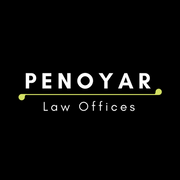
When someone passes away, their beneficiaries don’t automatically receive the property left to them—even if the decedent wrote a will. First, the estate will have to go through probate, a time-consuming legal process that can take months and consume a considerable portion of the decedent’s assets. Understanding probate law and how to avoid the process can save your loved ones a significant amount of time and prevent legal conflicts.
What Is Probate Law?
 Probate is the legal process through which a decedent’s final debts are paid and their belongings are legally transferred to their heirs. First, the probate court will assign someone to act as an executor—normally, someone nominated in the will. After inventorying the estate and closing the decedent’s accounts, the executor will begin distributing property according to the individual’s estate plan. Any court costs, attorney’s fees, and compensation for the executor come out of the estate before assets are distributed.
Probate is the legal process through which a decedent’s final debts are paid and their belongings are legally transferred to their heirs. First, the probate court will assign someone to act as an executor—normally, someone nominated in the will. After inventorying the estate and closing the decedent’s accounts, the executor will begin distributing property according to the individual’s estate plan. Any court costs, attorney’s fees, and compensation for the executor come out of the estate before assets are distributed.
How Can I Avoid Probate Court?
Probate law in Washington and many other states allows small estates to be distributed without submitting the will to court. Others may want to establish a living trust, which has significant probate avoidance benefits. When the beneficiary of a trust passes away, control can either be passed to another, or the trust can be dissolved and the assets distributed—bypassing the probate process altogether. Not only is transferring control of a trust much faster than probate, but it also preserves your family’s privacy.
With an in-depth understanding of probate law and over a century of combined legal experience, the attorneys at Penoyar Law Offices have the expertise to handle all of your estate planning needs. Their legal team will carefully evaluate your financial situation and recommend a strategy to preserve as many of your assets as possible. Visit their website or call (360) 875-5321 to set up a consultation, and follow their Facebook for more advice and legal tips.
About the Business
Have a question? Ask the experts!
Send your question

